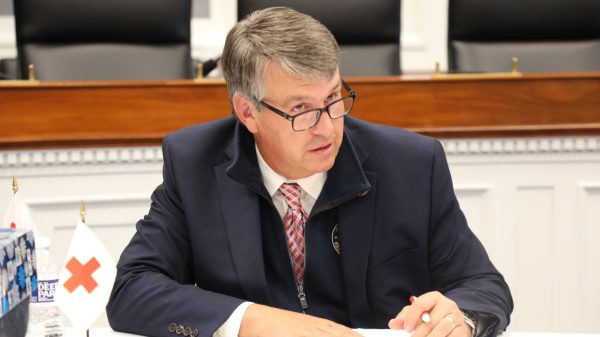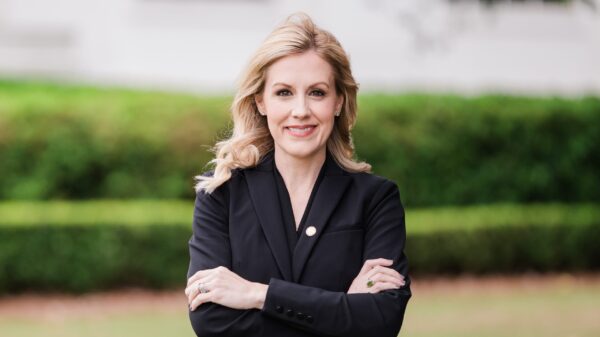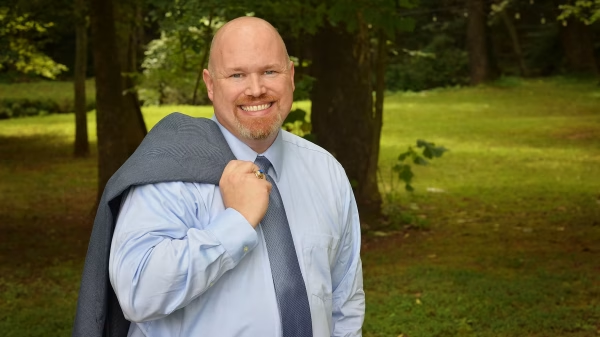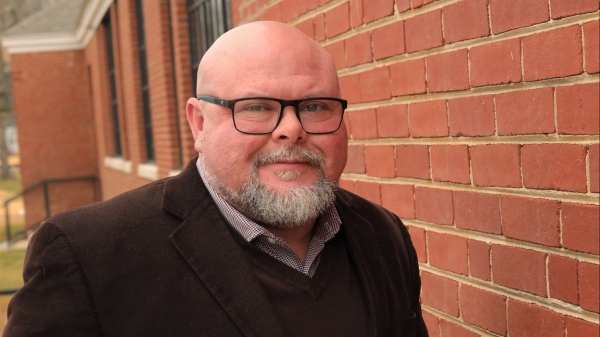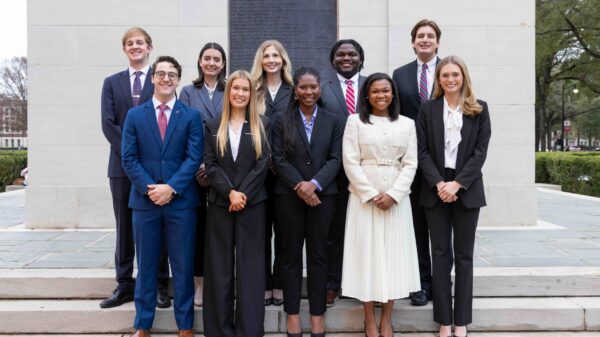Part 2 of 2
Alabama’s love affair with Donald Trump.
In June 2015, New York billionaire and reality TV star Donald J. Trump, announced that he was running for the Republican nomination for President of the United States. Trump was just one of seventeen major candidates in the Republican field. Alabama has not supported a Democratic nominee for President since Georgia Governor Jimmy Carter in 1976 and everyone in politics understood that there was no way that Hillary Clinton would ever carry the state in 2016, no matter who got the Republican nomination; but Trump’s popularity in Alabama was entirely unexpected. There were many more experienced candidates in the field, there were southern candidates in the field, there were more conservative candidates. Ted Cruz, Jeb Bush, and Marco Rubio all had hopes of carrying Alabama and the deep south states.
Trump is a former Democrat, was on his third marriage, is from New York, and was late to the game; but U.S. Senator Jeff Sessions, R-Alabama, loaned Trump key members of his staff to write the border security heavy talking points that Trump would run on. The people of Alabama embraced Trump’s candidacy immediately, even though most political leaders in the state were hesitant. 50,000+ Trump supporters filled a stadium in Mobile just weeks after he announced his candidacy. The rally was covered by every news outlet and was live during primetime on all the news networks. Trump followed that with mass rallies at the BJCC in Birmingham and a stadium in Madison. Trump’s rallies were unlike anything any other candidates had even imagined. Trump easily won the Alabama Republican Primary on Super Tuesday and followed that by winning more votes than any other presidential candidate in the history of the state. Trump was impeached by the House of Representatives, still faces a trial in the Senate and may or may not win re-election in November; but appears to be certain to carry the state of Alabama in another landslide victory.
The curious career of Artur Davis.
In 2010, Artur Davis was a U.S. Congressman representing Alabama’s Seventh Congressional District. In 2008 he had defied Joe Reed and the powerful Alabama Democratic Caucus by being state campaign chairman for U.S. Senator Barack H. Obama (D). Davis’s dogged efforts on behalf of his college friend were successful and Obama carried Alabama and the southern states thanks to strong support from Black voters and went on to win the Presidency. The Seventh Congressional District has a majority of Black and minority voters whose support of Democratic candidates is over 90 percent. Davis was popular with the business community and a district gerrymandered so that only a Democrat can win; and he had close ties to President Obama. Davis, however wanted to be Governor and badly misread the political landscape in 2010. Most Alabamians opposed Obamacare, so Congressman Davis voted against it, the only Black Democrat in Congress to do so. Davis had simply assumed he would be the Democratic nominee for governor and was positioning himself to appeal to moderate White voters in the general election. The vote against the Affordable Care Act and his failure to embrace gambling expansion hurt him with Black voters and the much more liberal Commissioner of Agriculture and Industries Ron Sparks (D) won the Democratic nomination for Governor in 2010, but lost to Bentley. Davis then became a Republican and embraced the candidacy of Massachusetts Governor Mitt Romney (R) in 2012. Davis has the distinction of being the only person to give speeches on the floor of both the 2008 Democratic national convention and the 2012 Republican national convention. Obama defeated Romney so there was no cabinet appointment for Davis. He then spent a year exploring running for Congress in Virginia before returning to Alabama. By 2015 it was becoming obvious that Whites were leaving Montgomery for Pike Road, Prattville, Millbrook, Coosada, and Wetumpka. Davis ran for Mayor of Montgomery promising to be the Black Mayor that could unite Black and White Montgomery. White voters decided they would rather keep Todd Strange for another term. Davis headed Legal Services of Alabama but resigned after a bitter disagreement over the direction of the agency. Davis wanted to run for Montgomery County Commissioner as a Democrat; but faced opposition from his own party over his previous Romney support. In 2019 he ran again for Mayor; but voters preferred Probate Judge Steven Reed instead.
To gamble or not to gamble and who gets the money.
The 1901 Constitution bans all games of chance in Alabama. Over the years county amendments to that created special exceptions for dog tracks, then bingo at the dog tracks, a horse track, and charity bingo. The Poarch Creek Band of Indians citing these exceptions opened electronic bingo facilities in Wetumpka and Shorter on their “tribal” lands under the federal Indian Gaming Act. In 2010 Gov. Bob Riley (R) created an anti-illegal gambling task force to close bingo facilities that were operating electronic bingo illegally. Riley asserted that bingo was a game played on a paper card not electronically and the Alabama Supreme Court agreed. Under threat of being forced out of business the handful of families that controlled the bingo business in Alabama pushed the Democratic controlled Alabama legislature to pass a constitutional amendment. The State Senate voted narrowly to approve the controversial constitutional amendment. The matter went to the Alabama House of Representatives, then under Democrat control. That was interrupted when the Obama Department of Justice announced that the FBI had been investigating the gambling bosses and the Alabama Senate and that Milton McGregor and Ronnie Gilley had allegedly bribed as many as six Alabama State Senators to pass the bill. The shocking turn of events meant that the gambling legislation wasn’t even going to be voted on in the House by Representatives for fear that they too would be indicted by the feds. The move had huge political ramifications because the gambling interests were suddenly spending their money on legal defenses, rather than on the re-elections of their allies in the Legislature. It also appeared to confirm Hubbard’s message that the Democratic controlled legislature was corrupt. The Poarch Creeks donated to Hubbard and Marsh’s effort to take over the Legislature. Even though Republican Senators were among those indicted, the scandal helped the GOP win their 2010 landslide political victory. Gilley and several co-conspirators pled guilty to bribery and corruption charges. McGregor and the Senators held firm and were ultimately found not guilty in two highly publicized trials. Polling shows that most people in Alabama support a paper lottery and every year the legislature considered and ultimately rejected a lottery proposal. The issue every year is electronic bingo. The vested bingo interests want electronic bingo and oppose any lottery amendment that does not include a provision allowing the dog tracks to have electronic bingo. The Poarch Creeks generally support efforts to have a paper only lottery and oppose provisions for video lottery terminals or other such gaming at the dog tracks. The issue of a compact allowing the Indians to expand their gaming in exchange for them paying taxes to the state has also come up; but that is opposed by the dog tracks who oppose giving the Poarch Creeks a gambling monopoly. In 2016 Bentley ordered a special session to consider a lottery; but that failed when each House passed a different lottery proposal. The subject is expected to be a controversial topic again in the 2020 session.
The long neglected prisons.
Politicians like to send people to prison; but nobody wants to properly fund prisons. The overcrowding, understaffing, deteriorating physical condition of the prisons was known by the Legislature each year of the decade and each year the legislature elected to do something next year. The Alabama Department of Corrections is funded in the State General Fund (SGF). The 2008 Great Recession and constitutional earmarking of money meant that most State General Fund budgets in the decade were smaller than the 2008 SGF budget. Worse, medical costs skyrocketed so troughout the decade, Alabama Medicaid took more and more revenue that was available in the SGF. In state budget after state budget the prisons were shortchanged. Legislators were loathe to pass any new taxes to fund prisons; because it would be politically unpopular and the ongoing impasse over gambling meant that there was no new income for the SGF. Prison guards went years without raises. The Bentley and Ivey administrations both put off maintenance in hopes that the Legislature would approve new prisons. New prisons that have never been built. The Justice Department has declared that the Alabama state prisons are the most dangerous in the nation and the federal courts are threatening a takeover of the prison system as a new decade begins.
Alabama children don’t read well and can’t do math.
Test score after test score confirms that Alabama’s public schools are among the worst in the entire country. This is nothing new; but has reached all time lows this decade. Recently the state’s school children scored dead last in math. Under AEA’s powerful influence, the state resisted school choice more than almost any other state. Most parents have little options about where their children can go to school. With Del Marsh taking the lead, the Republicans did create some new options for students in failing schools, passing legislation allowing scholarship granting organizations to give scholarships to children in failing schools to opt instead for private schools. A handful of charter schools have been allowed; but there is still considerable resistance to charters by vested special interests in Montgomery and at the local level. An effort by Marsh to weaken the state tenure law was rejected in the legislature. Common Core was supposed to raise performance; but the results in Alabama thus far have been nothing short of a disaster. The Ivey administration is spending much more on pre-K so that children will start school better prepared; but none of that has yet born results on the state’s test scores. The state is expanding apprenticeship programs and efforts to improve workforce development both in high schools and in the two year college system. The improving economy has made it harder for schools to recruit new teachers and the Legislature has had to raise teacher pay after pay had stagnated over much of the decade. Voters will decide on March 3 whether they want to jettison the elected state school board and go to an appointed board.

